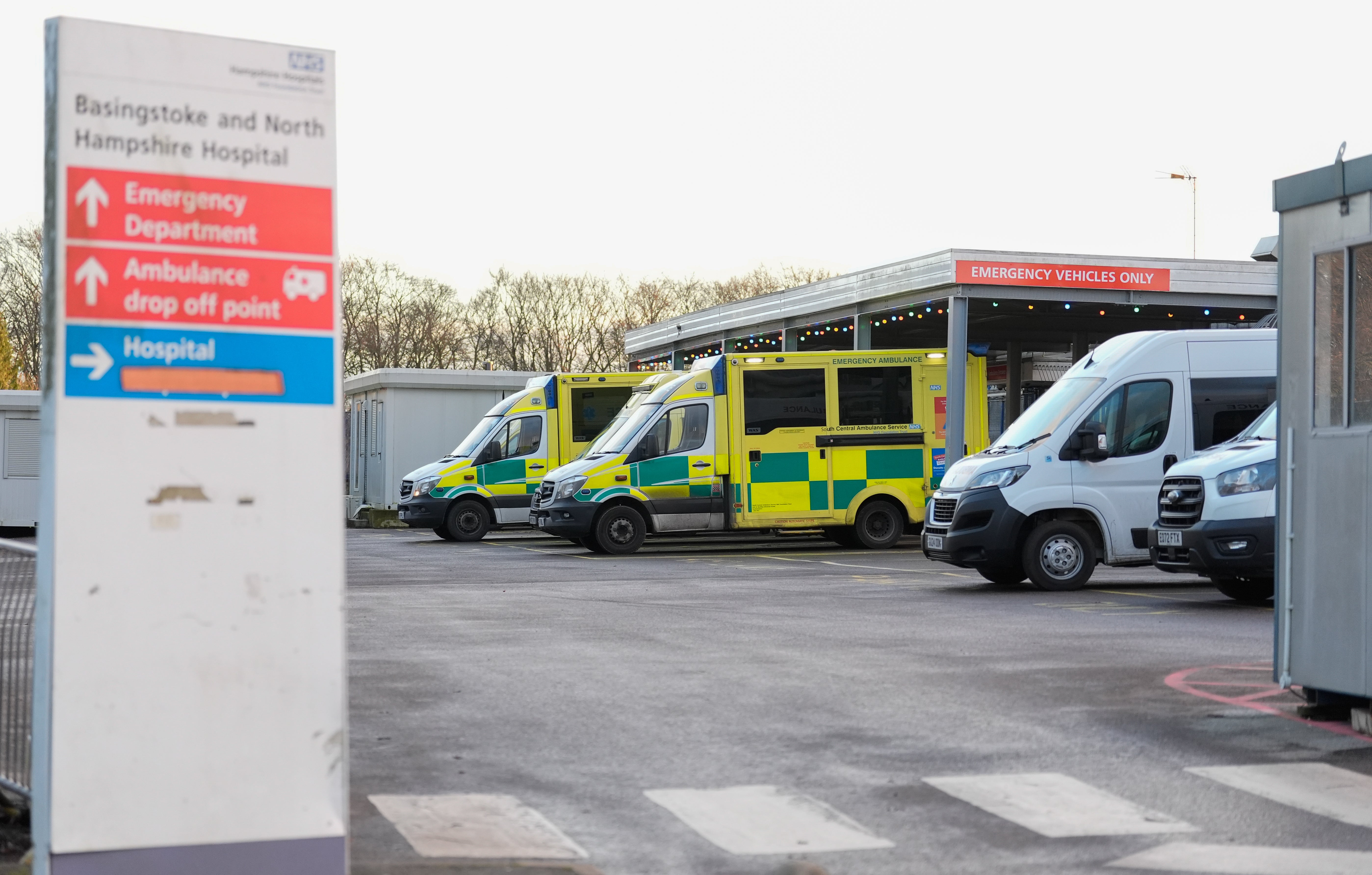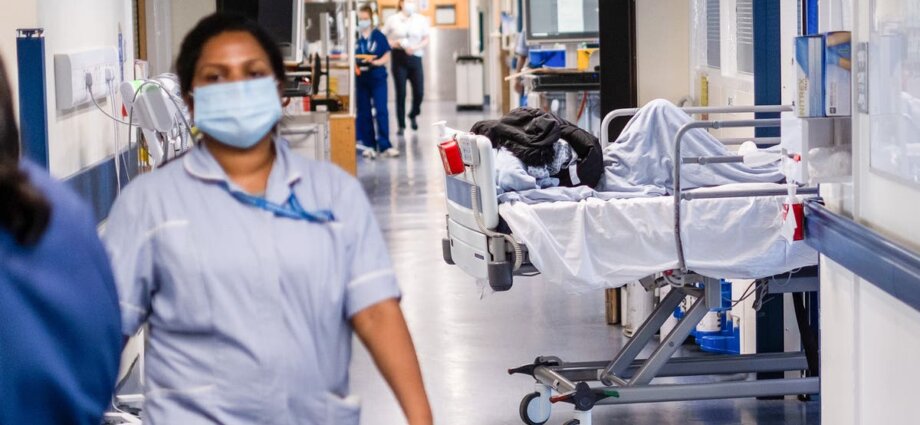Multiple hospitals across England have declared critical incidents amid a soaring number of patients being admitted with flu and other respiratory illnesses.
Health secretary Wes Streeting said he was “genuinely distressed and ashamed” by the situation faced by patients and staff as the highest alert level was sounded at least 11 hospitals due to high demands in emergency departments.
The UK’s chief emergency doctor, Adrian Boyle, told The Independent that the flu outbreak had “severe consequences” for already overwhelmed hospitals, while the NHS’s top doctor, Professor Sir Stephen Powis, said the demand showed “no signs of letting up”.
The rising pressure on wards was also having an impact on waiting times, with a patient at one hospital forced to wait 50 hours.
On Tuesday, Royal Liverpool University Hospital declared a critical incident, followed by Hampshire Hospitals NHS Foundation Trust, which runs Basingstoke and Winchester hospitals, and University Hospitals Plymouth NHS Trust, which runs Derriford Hospital.
Have you been affected by this? email [email protected]
Birmingham NHS Trust, which runs Queen Elizabeth, Solihull, Good Hope and Heartlands hospitals, and NHS Northamptonshire Integrated Care Board, which oversees Northampton and Kettering hospitals, also declared the alert level.
A critical incident declared on Friday by NHS Cornwall and Isles of Scilly, which runs Royal Cornwall Hospital, continues.
A number of other NHS trusts – including East Kent Hospitals, Leeds Teaching Hospitals and United Lincolnshire Teaching Hospitals – said their emergency departments were extremely busy and urged people to stay away.
Speaking on LBC Radio, Mr Streeting said: “I feel genuinely distressed and ashamed, actually, of some of the things that patients are experiencing and I know that the staff of the NHS and social care services feel the same. They go to work, they slog their guts out, and it’s very distressing for them seeing people in this condition as well.
The health secretary, who said an emergency reform plan would be published shortly, added: “We’ve got this extraordinary pressure on flu where we’ve got between three and four times as many hospital beds taken up with flu cases this year than we did this time last year. Even so, annual winter pressures should not lead to an annual winter crisis.”
Dr Boyle said most A&E departments around the country were now close to capacity.

“There have been critical incidents declared across English emergency departments,” he said. “Many other emergency departments are reporting very very long stays, and people are groaning under an enormous workload of people with flu and respiratory viruses.”
Dr Boyle said the increase in pressure on hospitals had come from a combination of the weekend’s cold snap, an earlier and harder flu season, and people mingling again.
NHS data showed there 5,000 patients in hospital with the flu at the end of last week – almost 3.5 times higher than the same week in 2023, although not as high as in 2022.
Dr Boyle said flu was just the straw that broke the camel’s back. “It would be a mistake to think that when the weather warms up, that everything will be OK,” he said. “Hospitals are so under capacity and overwhelmed, that even a predictable event like flu has severe consequences.”
Separate data up to the last week of November also showed a surge in A&E admissions, up nearly 7 per cent on last year, before the winter flu surge hit.

NHS national medical director Professor Sir Stephen Powis said: “Frontline NHS staff are under significant pressure and the demand is showing no signs of letting up, with latest data showing flu cases skyrocketed to around 5,000 a day in hospitals at the end of last year and multiple trusts across the country declaring incidents to help them to manage additional strain on services.”
Rory Deighton, director of the acute network at the NHS Confederation, said the “next two to three weeks” will likely be the busiest period of the year for health services. “We are seeing many patients who are very poorly and need hospital beds, with up to 20 per cent of beds taken up by patients who could be at home with social care support,” he said.
Health experts have told The Independent this winter’s flu strain appeared to be more virulent than last year’s.
Professor Penny Ward, of King’s College London, said: “It seems this year is more virulent, and there is a relatively low rate of bed spaces at the best of times so it’s not unusual for the winter flu season to overwhelm the hospitals.”
The latest NHS data on flu vaccinations from mid-December shows 73 per cent of people aged over 65 had received a flu vaccine – but just 37.6 per cent of people aged under 65 and considered high risk including pregnant women and young children.
“It’s never too late for people during the flu season to get their vaccines,” Prof Ward said.











